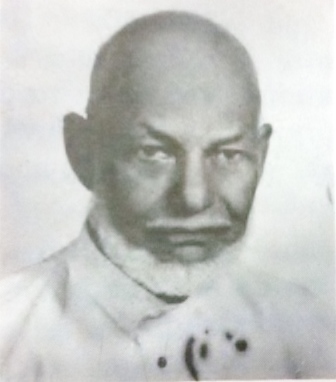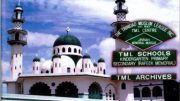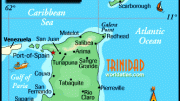Reproduction of a tribute to the late Abdul Ghany, President General of the Tackveeyatul Association Inc. in 1951 by the late Canon J.D. Ramkeeson, M.A. as appeared in the Port of Spain Gazette August 28th 1951.
“The Muslim people of this country, if they are to hold their own and preserve their religion and culture, must build more schools to have their children educated in English, Urdu and Arabic. There was a time when we concentrated on mosques, now we must on schools. Religion is indispensable but so is education. We need more and more schools because nothing can surpass the importance of education today. You must all unite and carry on this work. See and do not let it fall, for our salvation lies in the education of our youth. Bear this in mind always. I leave this work to you if I die tomorrow”.
And he did die on the morrow! For within 12 hours after speaking these words at a public meeting at Penal, at the end of August, Mr. Abdul Ghany passed away at the patriarchal age of almost 90. It was a blow to the entire community and saddest of all to the Muslim section of it.

Ortinola Estate, Maracas Valley
Born on the Ortinolla Estate, Maracas, amid the social squalor and exploitation of Indian indenture in the sixties, he educated himself in the three R’s as well as in Arabic and Urdu. Through an almost fanatical perseverance he triumphed magnificently over the lamentable restrictions and dismal lack of opportunities of his place and time.
He was sagacious enough to see that while his own language was necessary for purposes of religion and intercourse, he could only advance through a knowledge of the lingua franca of the Colony. That was why he learnt to read and write English. In those days Indian women were heavily bejewelled with all kinds of rings – for ears, nose, neck, arms and ankles. It was not rare for some women physically to carry a small fortune on themselves!
Thus the craft of the gold and silversmith offered a ready avenue to some measure of financial competence. He studied the craft and worked at his trade with steadfast industry. Before long he began to grow economically independent through being reliable and resolutely thrifty.
But his horizon was broader than that of a metal worker. His ambition was to be a merchant. Here again he displayed acumen in the choice of business he wished to pursue. He saw clearly that the staple diet of the Indian population consisted of rice, flour, peas, oil and fish, and shrewdly concluded that anyone who could supply these regularly would make money.
He set up as a wholesale provision dealer and from that day never looked back. A pioneer in lower Henry Street, his store prospered and grew. He increased the variety of what he offered for sale and started the first factory in aerated drinks.
Within a decade he became a man of means, and his business motto consisted of two simple principles: Sell the public the best and pay what you owe. But he was not content merely to make money; it was his desire as well to improve and assist those who sorely needed his help – the poor and uneducated Muslims of the island. His influence developed with his independence.
He became in his prime, perhaps the foremost leader of his community and earned the reputation of being the Colony’s most eloquent speaker in Urdu. He had an itch to teach. He started and maintained a school for 25 years at St. Joseph where he lived. He himself taught in it after business hours and he employed a teacher to assist him, paying his salary out – of his own pocket.
Together with this he used whatever spare time he had to collect funds for the building of mosques. He rallied his community behind him, and there are few Muslim buildings in Trinidad that have been denied the benefit of his goodwill and generosity.
It would have been a surprise if the sterling worth of such a man were not recognised by his fellow Muslims. They paid him the tribute of electing him for 21 years altogether President of one of the most important sections of local Islam, for his quiet gifts of leadership had blossomed and flourished.
He bought and sold by day and taught and spoke by night. Recognising the scarcity of progressive education for Muslim youth, especially in those parts of the island where they were concentrated, he gave his co-operation wholeheartedly to Moulvi Nazeer Ahamad, of India, in the founding of the Islamia School at El Socorro San Juan.
Two years ago this school was recognised by Government as necessary and received official aid. Thus the first, and so far the only Islamic School to receive such recognition will stand as a witness of his enterprise and charity and as a fitting memorial to his spirit of which it is a symbol.
Such is the career and such the stature of a Trinidadian of Muslim stock who perhaps belonged to the old school.
Those of the new school might well follow his example. He did what every intelligent man should first try to do and that is to improve his economic position by education, toil and thrift. He went further; he improved the lot of others by his passion for service and by his gentle but zealous interest in the social welfare of those around him.
Extracted from Tackveeyatul Islamic Association of Trinidad and Tobago Inc – Silver Anniversary souvenir brochure, published in 1974





Be the first to comment on "Abdul Ghany (c1862- 1951) – A Muslim Patriach"